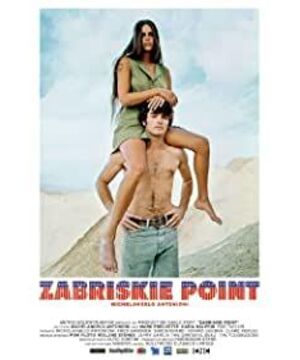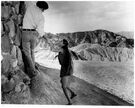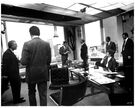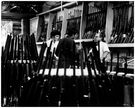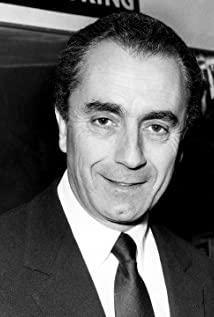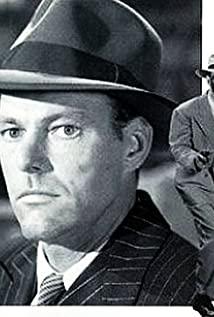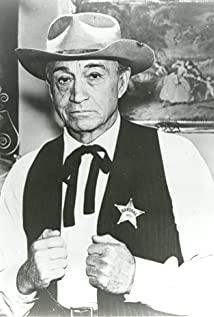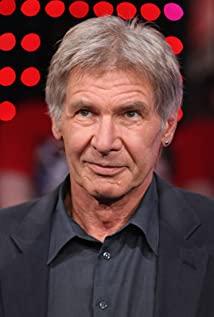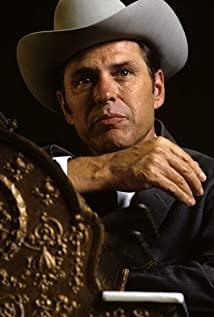They came to Zabriskie Point in 1970, and Antonioni chose to be downright radical and wild with this era of cool. If you just read the beginning, you want to kill the screenwriter. Unconsciously, but quietly sinking. It was like the group of young people in the late 1960s, who fought to the end with Molotov cocktails and tear gas from the police. It was an exit that an entire generation of young people smashed open with blood and violence in a generation that could not see the future.
On the other side, high-tech office buildings, well-dressed white-collar men, and bright and dazzling offices are still standing still in this chaotic era. It is a world full of rules and order. And in an invisible realm, what appears to be a decent job takes the form of a program in industrialization, or a puppet that is only manipulated. Like an office building full of surveillance probes and cramped cubicles, perhaps the world of 1984 was not far away.
Boys and girls, in a sense, are representatives of the escape from these two "systems", their banishment to the inextricable ritualization. When the pink plane keeps swooping down and "kissing" the gray car, it's a picture that is so romantic. Look at today's crappy idol dramas and those who have sex on social networking sites, they should all learn from Grandpa Anton, this is fucking cool, okay?
Zabriskie Point, where the gypsies roamed, was as wild as the end of the world. No more people, no traces of industrialization, no aggressive police, and no need to face the boss's pig-backed face. They tumbled down the hillside, stripped naked, and danced in the dust of the loess. What greeted them was a grand hippie carnival ceremony, all naked and indulging in joy. What dog days and rules, all die, only enjoyment is the only outlet. Utopia appears only when it is needed, as Zabriskie Corner is at the moment. Boys and girls are intercourse, melting, how can the psychedelic music not make people tempted and crazy, but unfortunately there is no leaves and LSD. But so what, savages don't need civilization.
With the help of an old man, the boy and the girl painted the plane into a kaleidoscope of seven colors, and the huge "NO WAR" slogan on it was as clear as the holy lake water. The plane took off again, and the girl waved goodbye. But this time, it became an eternal farewell. The boy was shot by the police and the girl returned to the cubicle. Under all kinds of grief, he unexpectedly witnessed the last "big bang" grand occasion. This is another "final home run" by the sly Grandpa Anton, just like the awesome ending in "Zoom" that amazed everyone, the hand he deliberately left in this film is still enough to make a Under the baptism of visual impact, the facial expressions and even the entire nervous system continued to be dumbfounded for dozens of minutes. Let's call this the master's skill. Although the God-building movement is not desirable, in this era of social networking where praise is soft, this 1970 movie is enough to win "LIKE" from all over the world.
Today, utopia no longer exists, and "dystopian complex" has become the mainstream in science fiction movies. Those young people who participated in the anti-war and resistance movements in the 1960s have long become the mainstay of the world of Western political and economic systems. However, the young people who have grown up today are still fascinated by that era, and now they seem to be sweeping the part of the beautiful and uninhibited, retro and rebellious elements in their hearts with a halo of glory. The 1960s was a phenomenal era worth regurgitating. Those rock musicians, avant-garde artists, and radical writers and poets who flourished in that era have all become undeniable beliefs in the hearts of young people for generations.
Just as the boy jokingly wrote "Karl Marx" in his signature, the left-wing ideology in the late 1960s led many young people to take to the streets, bravely confronted the police, and caused a lot of bloodshed. Especially in the late 1960s, the beautiful and non-violent value appeals in the Port Huron Declaration were gradually replaced by a series of radical "resistance" and "riots", which used "revolutionary words", Choose to fight on the streets. Others have long hair, grow beards, wear tie-dyed clothes, choose to stay away from politics, seek relief from sex, psychedelics, and rock music, and even escape society, return to nature, and live a communal life.
Today, it seems that the above behaviors have made the 1960s more diverse, and as a result, many cultural, artistic and religious trends have been born. Therefore, from beginning to end, these rebellious students who took to the streets to resist in the 1960s have not been "one size fits all" or have never been saved. As Morris Dickstein wrote in "Eden's Gate": Many people who grew up in the 1960s have been baptized by storms and have become mature and wise. If they can't avoid a tinge of sadness, it's because mainstream culture dismisses them as sacred values. Nonetheless, these values were eventually established: sexual freedom; the rights of women, minorities and persons with disabilities; a healthy skepticism, even a certain mockery, of authority; tolerance for different sexual preferences; opposition to military adventure; protection of the environment; and a a more casual and eclectic new social life. Politically, the backlash against the 1960s has empowered the right everywhere, but culturally, new ideas have become pervasive.
Perhaps, as shown by the young people in the film who bravely confronted the police, many of their views may be so naive that today's people can't help laughing, but they were the most precious in that era. From this point of view, it is no wonder that the old left-wing angry grandfather Anton made such a cool and extreme movie.
View more about Zabriskie Point reviews


